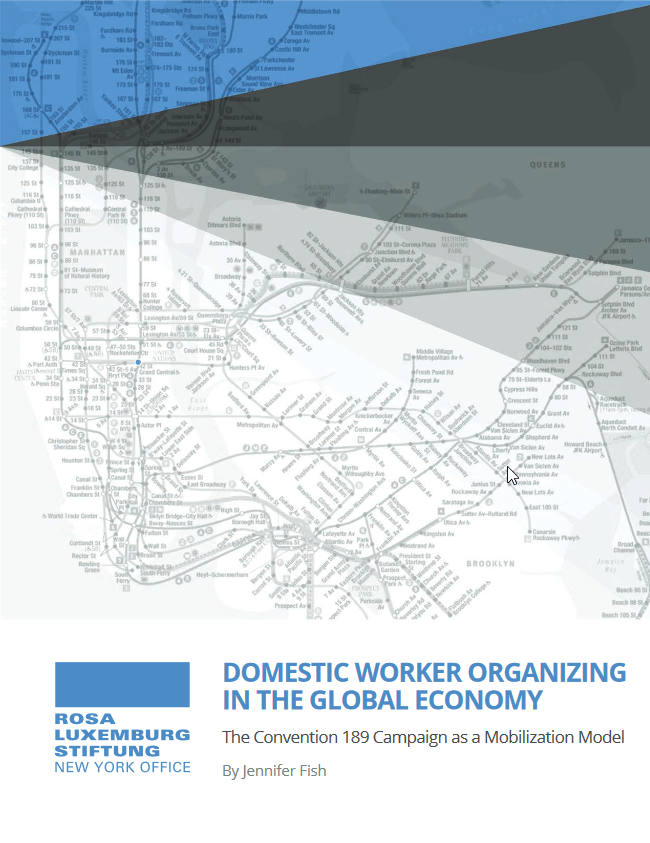Share Twitter Facebook Email Copy URL
The Convention 189 campaign as a mobilization model

Jennifer Fish is the Chair of the Department of Women’s Studies at Old Dominion University and a key partner of domestic workers’ organizations. This study was originally published by the Rosa-Luxemburg-Stiftung’s New York Office.
Considering the extremely precarious working and living conditions facing domestic workers, the International Labour Conference recognized the need for a special international instrument focused on the sector as early as 1948. For decades, however, no such instrument was introduced.
Challenging international institutions and government negligence, informal workers’ movements across the globe organized for developing new strategies and building new vehicles to take up the struggle, engaging old and new allies along the way. Domestic workers—and particularly the women among them—have been at the forefronts of these battles against precarity during the last decade, and it was their coordinated global effort that led to the adoption of the ILO Convention Concerning Decent Work for Domestic Workers (Convention 189) and the accompanying Recommendation at the 100th International Labour Conference in 2011. This achievement represents a milestone for domestic workers, whose conditions and place in the labour market were acknowledged for the first time. By incorporating a human rights approach to the negotiation process, it also marked a turning point for international labour regulations.
In this study, Jennifer Fish takes Convention 189 as a case study to analyze the potentials and shortcomings of a UN approach to labour rights. Understanding the inherent contradictions and tensions in the adoption of the convention and the organizing processes surrounding it provides a foundation with which to assess its effectiveness ten years later.



